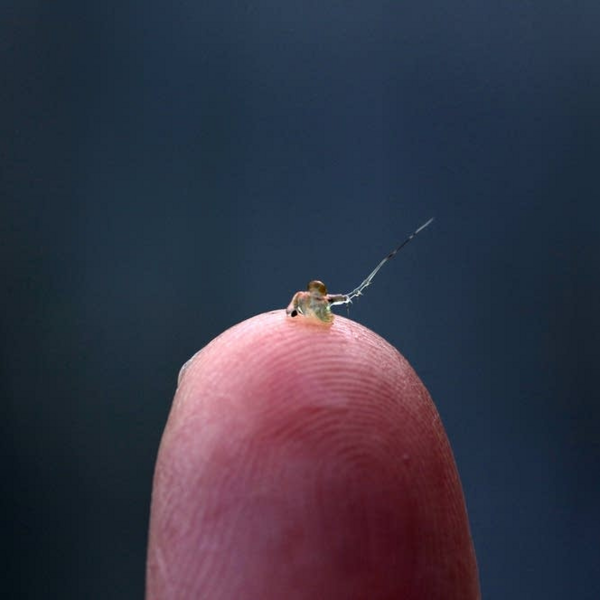The spiny water flea, an invasive zooplankton from Europe first found in the U.S. in the 1980s, made its way to New Hampshire lakes in 2023. Understanding the potential threat, NLRA began a regular monitoring program to see if spiny water flea had made it to Newfound Lake.
This week a specimen was positively identified in Newfound Lake by a local fishing guide, which underscores the importance of community awareness and vigilance.
While it is not directly harmful to humans, spiny water flea can potentially impact:
- The food web. It eats plankton that native species rely on, and isn't a good source of food for fish.
- Fishing and recreation. Spiny water flea gets caught in fishing lines and can impact the abundance of fish populations.
- Water quality. Because it eats native zooplankton that control algae, this may mean more algae growth in Newfound Lake.
There is no way to remove spiny water flea once a water body is infested. To stop further spread, clean, drain, and dry is especially important. Anglers should dry their fishing line with a sturdy cloth after their last cast. NLRA will continue to monitor the lake to track its presence and impacts moving forward.
If you find spiny water flea in Newfound Lake, take a picture and email it, along with where it was found, to Paul@NewfoundLake.org.
But now, the good news!
Thanks to our trained Weed Watcher volunteers, we can say with confidence that Newfound Lake remains free of aquatic invasive plants. Volunteers put in over 130 miles looking for early signs of trouble and covered 100% of Newfound's shoreline to ensure Newfound stays healthy and clear.
This is just the beginning. To stay ahead of invasive aquatic plants, our goal is to cover Newfound's entire shoreline multiple times a season. Catching invasives early can prevent long-term damage.
We need your help to keep invasives out! Learn how to stop aquatic hitchhikers before they spread, or sign up to volunteer next summer. Learn more:NewfoundLake.org/invasives
Photo: Chris Hagen
